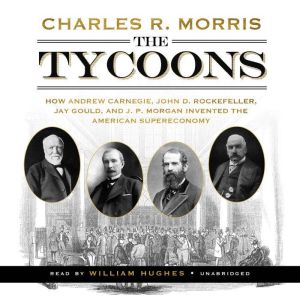Quotes
“Morris skillfully assembles a great deal of academic and anecdotal research…Impressive.”
New York Times Book Review
“Morris displays a cultural
diarist’s careful attention to detail that makes a reader feel like a time
traveler plopped down among men who were by turns vicious and visionary.”
Christian Science Monitor
“Superb…Gracefully and eloquently clarifies these men’s
frequently misunderstood roles in the shaping of modern US commerce.”
Providence Journal
“Following the end of the Civil
War, American per capita production and consumption grew rapidly, the
population soared, and the US economy surged past Great Britain’s—a radical
transformation that Morris chronicles through the lives of four protagonists…More
an economic argument than an exposition of history or biography, Morris’ volume
analyzes long-term historical trends and their influence on modern affairs. The
result is a fascinating revisionist interpretation in which Gould and
Rockefeller come off better than conventional wisdom suggests, and Carnegie and
Morgan worse. Readers…will be intrigued by his original angle on the robber
barons.”
Publishers Weekly
“An excellent picture of the growth of American business that made the United States an economic powerhouse.”
Library Journal
“Morris profiles the four big ‘robber
barons’ of post-Civil War America…Although all four would probably have
excelled in any era, it was the machine age, the move from an agricultural to a
manufacturing society, and the concurrent rise of mass consumption, that
created an environment for their megasuccess. Morris shows how the
inventiveness and spirit of the American worker in the later 1800s led to a
surge of growth that had the United States roaring past Great Britain to become the
world’s top producer. ‘Scientific management’ of factories created interchangeable
parts and assembly lines, bringing branded foods and labor-saving home
appliances to the people. Morris brings home how the rapid expansion produced a
‘supply shock’ that overshadows any so-called paradigm shift that we may be
experiencing today.”
Booklist




